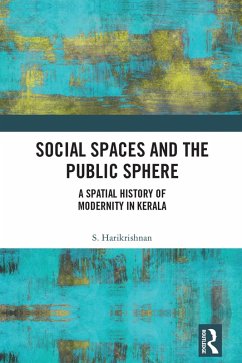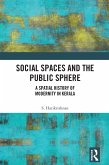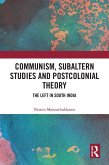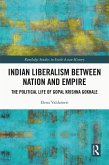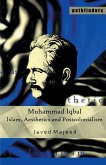The volume focuses on how "modernity" has also been a struggle for access to public spaces, and non-institutional spaces like teashops, markets, public roads, temple grounds, reading rooms, and libraries have all been crucial to how political culture was shaped, and how dominant hegemonies-caste, class, or capital-have been challenged. It suggests that the secular public sphere that emerged in the last century in Kerala was a result of the constant negotiations between conflicting ideas which were put to test in these social spaces. At a time when digital spaces are fast replacing physical ones, this book is a timely reminder of the struggles that led to the emergence of secular public spaces in Kerala. It contributes to similar studies on public space that have emerged from other parts of the world over the last decades.
A major contribution to understanding modern India, this book will be of interest to scholars and researchers of social history, political science, political sociology, gender studies, linguistics, and South Asian studies.
Dieser Download kann aus rechtlichen Gründen nur mit Rechnungsadresse in A, B, BG, CY, CZ, D, DK, EW, E, FIN, F, GR, HR, H, IRL, I, LT, L, LR, M, NL, PL, P, R, S, SLO, SK ausgeliefert werden.
former Reader in Anthropology at SOAS, London

